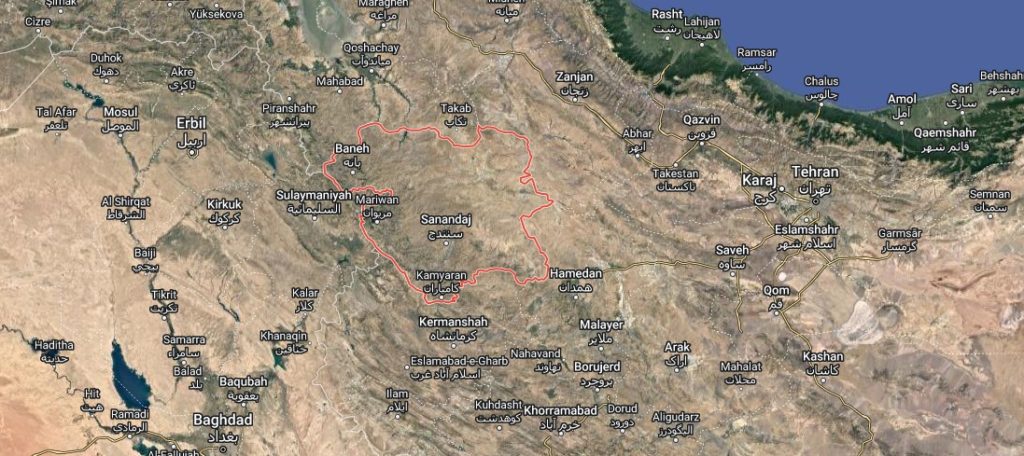Advantages of Kurdistan

Advantages of investment in Kurdistan Province
Climate
High rate of precipitation in this province has turned it into a water-rich area. The annual rate of precipitation amounts to 14.2 billion m3 which is indicative of the high potentiality of Kurdistan province in terms of water supply. The mild climatic condition of the province has changed it into an appropriate spot for running industrial and agricultural projects.
Natural Gas
Gas-piping in Kurdistan province started in 1992. The channelization started from Hamedan province and the two cities of Sanandaj and Qorveh were first endowed with natural gas. Gradually, all the cities of Kurdistan province were supplied with natural gas and the fuel shortage problem was fully resolved for the industrial and productive sectors. Besides, 420 villages in Kurdistan Province are furnished with natural gas.
Electricity Power
Today, Kurdistan province is directly connected to the main power network of the country through the three provinces of Hamedan, Kermanshah and West Azarbaijan. Therefore, it has no limitation in supplying the required power in the region. The amount of power generation is twice as much as its demand and a 1000-megawatt gas-based power station has already been utilized.
Schools of Higher Education
Kurdistan province enjoys many schools and colleges in which proficient manpower, required for industry and agriculture sectors, is trained. These schools include: University of Kurdistan, Kurdistan University of Medical Sciences, Islamic Azad University, Pyam-Noor University, Applied-Scientific University, College of Industrial Management, and Technical Colleges. A variety of majors and courses are offered in these schools including basic sciences – Physics, Chemistry and Mathematics –, the humanities – accounting, administration and languages –, Technical and Engineering – Computer Sciences, Civil engineering, agriculture, etc. Today, 40,000 students are busy studying in these schools in the province.
Manpower
According to the census conducted in 2006, the population of Kurdistan province is 1440156 from which 855819 people live in urban areas (59.9%) and 584337 people live in rural areas (40.5%).
Bank and Insurance
Today, 280 branches of public banks are providing banking service for the people in Kurdistan province. A new bank is also established under the name of Iran’s Export Growth Bank whose goal is to provide the facilities required to boost non-petroleum exportation and business exchange with other countries. This bank is the only specialized bank whose specialty is in the scope of import and export. From among the most important facilities provided by the banks the following items can be mentioned:
Facilities before providing goods and services
Facilities after providing goods and services
Facilities to encourage investment both in and out of the country
Facilities to import goods ( raw materials, equipment and machinery)
Facilities for the buyers and sellers
Foreign and local currency facilities:
Opening documentary credits
Issuing various guaranties in foreign and local currency
Transference of imported and exported foreign and local currency
Electronic banking service
Industrial Cities
Industrial cities provide a good setting for investors through the provision of infrastructural facilities such as water, electricity, telephone line, gas, etc. Among the advantages found in these cities, the following can be mentioned: no need to apply to any offices or organizations for a permit, no need to apply to the municipality for a construction permit, and an enormous decrease in the costs of investment (water-piping, gas-piping, and electricity have already been provided).
Currently, there are 12 industrial cities in the province and 324 industrial units are active in the cities of Sanandaj, Saqiz, Qorveh, Bijar, Kamyaran, Dehgolan, and Mariwan. These cities cover an area of 795 hectares.
The Iraqi Market
Kurdistan province enjoys 230 km of common border with Iraq. The three active frontier markets in the cities of Mariwan, Baneh and Saqiz and also the formal establishment of Bashmagh Border in Mariwan at which a customhouse is placed, have made it possible for businessmen, manufacturers, and pedlars to import and export goods.
The following are some of the exportation capacities in Kurdistan province:
Three frontier markets in the cities of Mariwan, Baneh and Saqiz whose exportation volume amounts to more than 806 million dollars in 2009
An increasing development in inter-provincial exchange (3.84 Billion dollars in 2009 and 175% increase compared to the same time span in 2008)
The existence of 16 cooperatives at the border along with 198000 people living in the four cities of Saqiz, Baneh, Mariwan and Sarvabad. In 2009, more than 23 million dollars, from the foreign currency quota, are allocated to importing various goods
Cultural, Lingual and Tribal similarities between Kurdistan province and the provinces in the north of Iraq
The data bank about all the exporters in the province
The existence of exporting groups and organizations in the province
The exportation market in the north of Iraq which holds a population of four million people
Specialized Commercial Zone
The aim in establishing Specialized Commercial Zones is to increase exportation, attract foreign capital and create job opportunities. Bashmagh border in Mariwan is the most active border from among the twelve common frontier borders between Kurdistan province and the north of Iraq, and the investors in this zone will be provided with remarkable loans and facilities in these zones.

